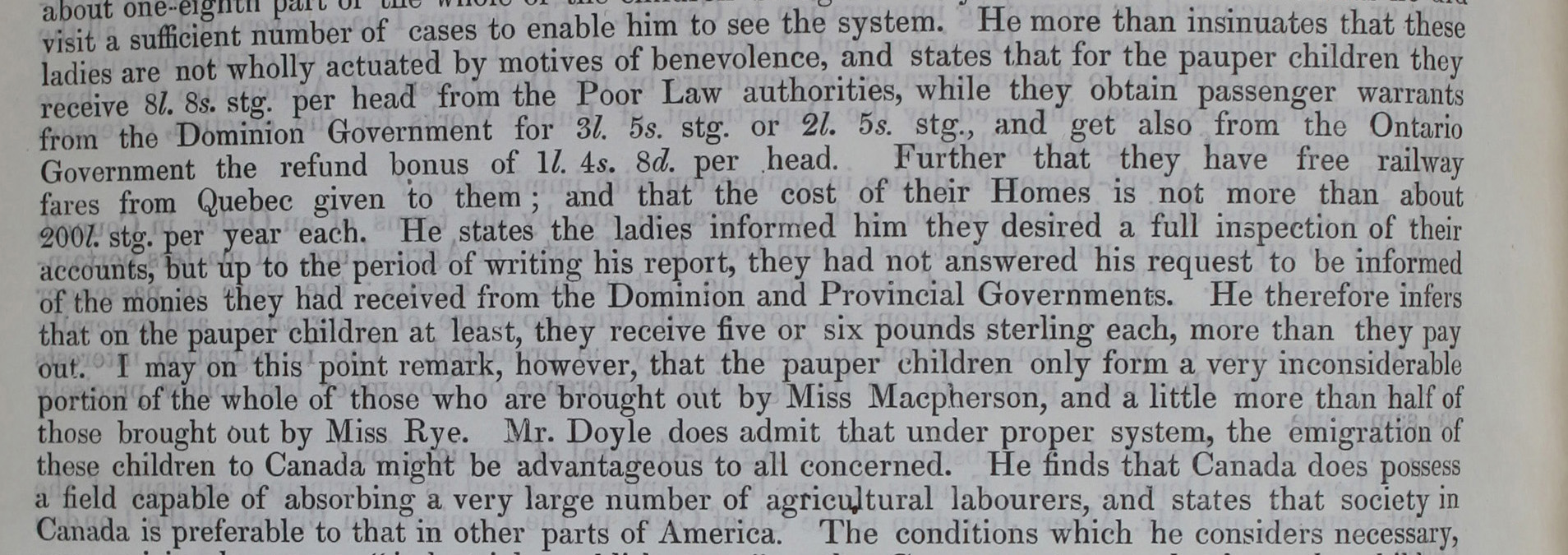
… He more than insinuates [suggests a bad thing] that these ladies are not wholly actuated [driven] by motives of benevolence [kindness], and states that for the pauper children they receive 8l. 8s. stg. [£8. 8 shillings, sterling] per head from the Poor Law authorities, while they obtain passenger warrants [travel costs] from the Dominion Government [Canadian Government] for 3l. 5s. stg. [£3. 5 shillings, sterling] or 2l. 5s. stg. [£2. 5 shillings, sterling] and get also from the Ontario Government [Local government] the bonus of 1l. 4s. 8d [£1.4 shillings 8 pence] per head. Further that they have free railway fares from Quebec given to them; and that the cost of their Homes is not more than about 200l. [£200] sterling per year each. He states the ladies informed him they desired a full inspection of their accounts, but up to the period of writing his report, they had not answered his request to be informed of the monies they had received from the Dominion and Provincial [local] Governments. He therefore infers that on the pauper children at least, they receive five or six pounds sterling each, more than they pay out. I may on this point remark, however, that the pauper children only form a very inconsiderable [small] portion of the whole of those who are brought out by Miss Macpherson, and a little more than half of those brought out by Miss Rye. Mr Doyle does admit that under proper system, the emigration of these children to Canada might be advantageous to all concerned. He finds that Canada does possess a field capable of absorbing a very large number of agricultural labourers, and states that society in Canada is preferable to that in other parts of America.
…
Extracts from a Report of the Proceeding of the Committee of the House of Commons on Immigration and Colonisation, 1874, Catalogue ref: MH 32/20.
This extract suggests that Doyle feels that these women were making money from their scheme. [Note: l means pounds, s means shillings, d means pence, stg means sterling, British money.]
- How does Doyle explain that Rye and MacPherson’s schemes profited from migrating pauper children to Canada?
- What does Doyle feel about child migration according to this extract?
